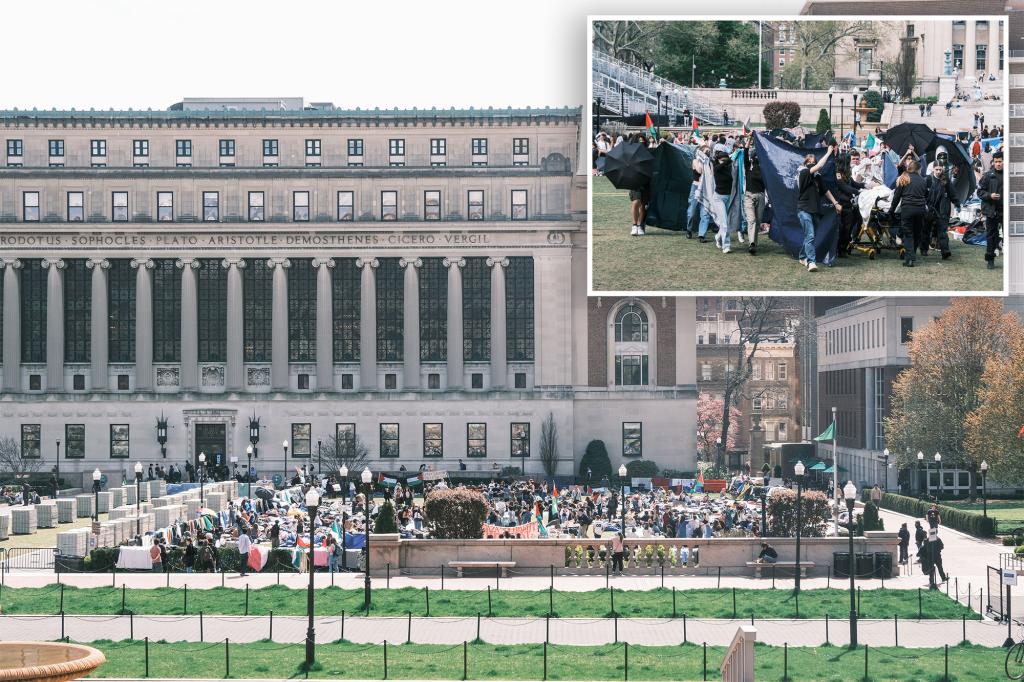A woman was taken away on a stretcher during a protest at Columbia University, where roughly 200 demonstrators were gathered on a grass field. While the student’s condition was not clear, the University EMS provided medical treatment. Some student protesters used umbrellas and tarpaulin to block her from sight, while others continued to chant, hold signs, and wave Palestinian flags despite the previous arrest of over 100 students by the NYPD. Several people were arrested during the protest, with others chanting for justice and demanding that the university divest from Israel.
Among the protesters were both pro-Palestinian and pro-Israel individuals, with tension escalating between the two groups. One pro-Israel bystander was doused with fake blood after engaging with pro-Palestinian students, leading to a confrontation. The protesters called for the university to sever academic ties with Israeli universities and stop censoring students advocating for Palestinian liberation. A police presence in riot helmets was observed, but the demonstrators remained steadfast in their demands despite the opposition they faced from across Broadway.
The protest also attracted notable figures like actress Susan Sarandon and New York City council members, who visited the demonstration in solidarity. Speeches were given by protest leaders condemning the university for its ties to oppression and gentrification in Harlem. The faculty of Columbia University and Barnard College issued a statement condemning the suspension and arrest of students engaged in peaceful protest and called for their records to be expunged immediately. These faculty members emphasized the importance of protecting students’ freedom of speech and demanded no disciplinary action against protesters without due process.
Despite the dismantling of the tent encampment, Columbia University expects demonstrations to continue on campus, as protests have been ongoing since October. The university has rules in place regarding the time, place, and manner of protests, which will be enforced. Protests will continue to be monitored by the university to ensure they adhere to these guidelines. The demands of the faculty members for the immediate dismissal and expunging of charges against students highlight their commitment to upholding the right to protest and speak freely on campus. Additionally, the faculty called for restrictions on police presence on campus without proper consultation.
A sense of division and tension was palpable during the protest, with both pro-Israel and pro-Palestinian individuals expressing their perspectives. The presence of notable figures and community leaders at the demonstration underscored the importance of solidarity in advocating for change. The condemnations from faculty members at Columbia University and Barnard College indicate a strong stance against the suppression of student activism. As protests continue, it remains to be seen how the university will engage with demonstrators and address their demands for change in academic ties with Israel. The ongoing demonstrations reflect a commitment to activism and advocacy within the university community.


